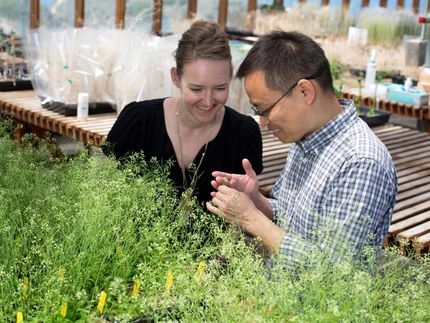Phoenix rising: Scientists resuscitate a 5 million-year-old retrovirus
Advertisement
A team of scientists has reconstructed the DNA sequence of a 5-million-year-old retrovirus and shown that it is able to produce infectious particles. The retrovirus named Phoenix is the ancestor of a large family of mobile DNA elements, some of which may play a role in cancer. The study, which is the first to generate an infectious retrovirus from a mobile element in the human genome, is considered a breakthrough for the field of retrovirus research. The findings are reported in Genome Research.
"Phoenix became frozen in time after it integrated into the human genome about 5 million years ago," explains Dr. Thierry Heidmann, lead investigator on the project. "In our study, we've recovered this ancestral state and shown that it has the potential for infectivity."
Retroviruses, whose genomes consist of RNA, can create DNA "copies" of the RNA genomes and incorporate them into the genomes of their hosts. Phoenix belongs to a sub-category of retroviruses-known as HERVs (human endogenous retroviruses) which inserted copies into the human germline millions of years ago. These copies were subsequently passed on from generation to generation. Remnants of HERVs now comprise nearly 8% of the human genome, but most were rendered inactive long ago by mutations.
Heidmann and his colleagues set out to re-activate one family of HERVs, called the HERV-K(HML2) family, an evolutionarily "young" family of retroviral elements. They aligned HERV-K(HML2) elements, determined their consensus sequence, and then constructed a retrovirus-Phoenix-from the consensus sequence by mutating existing HERV-K(HML2) copies.
In addition, the researchers showed that Phoenix could form particles capable of infecting mammalian cells in culture. Infectivity was very low, presumably because host cells have evolved mechanisms to resist uncontrolled virus propagation, as has been repeatedly observed for retroviruses from experimental animals.
"Phoenix has produced some 'genomic offspring' that may be responsible for the synthesis of the retroviral particles that can be observed in some human cancers such as germline tumors and melanomas," says Heidmann. "This work will be helpful in tracking down the role of retroviruses in these human diseases."
The work was conducted by Heidmann's group at the Institut Gustave-Roussy in collaboration with Gérard Pierron from the Institut André Lwoff.
























































